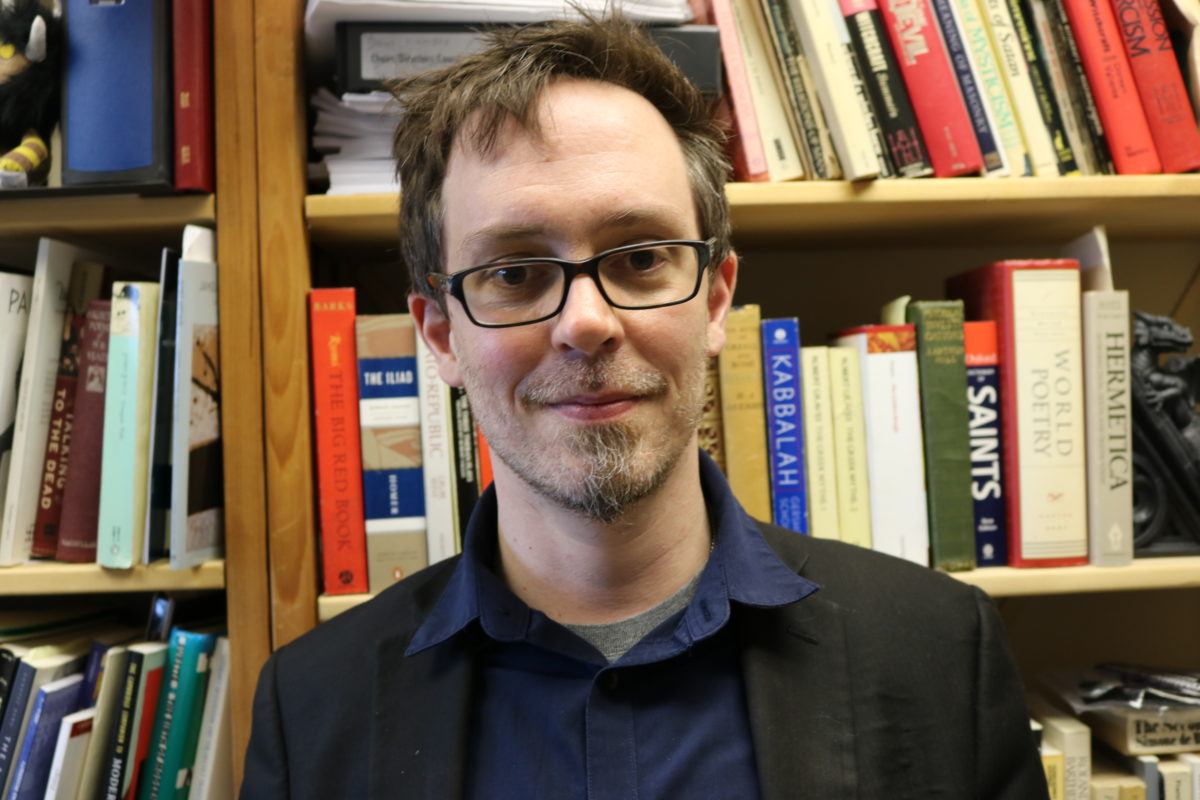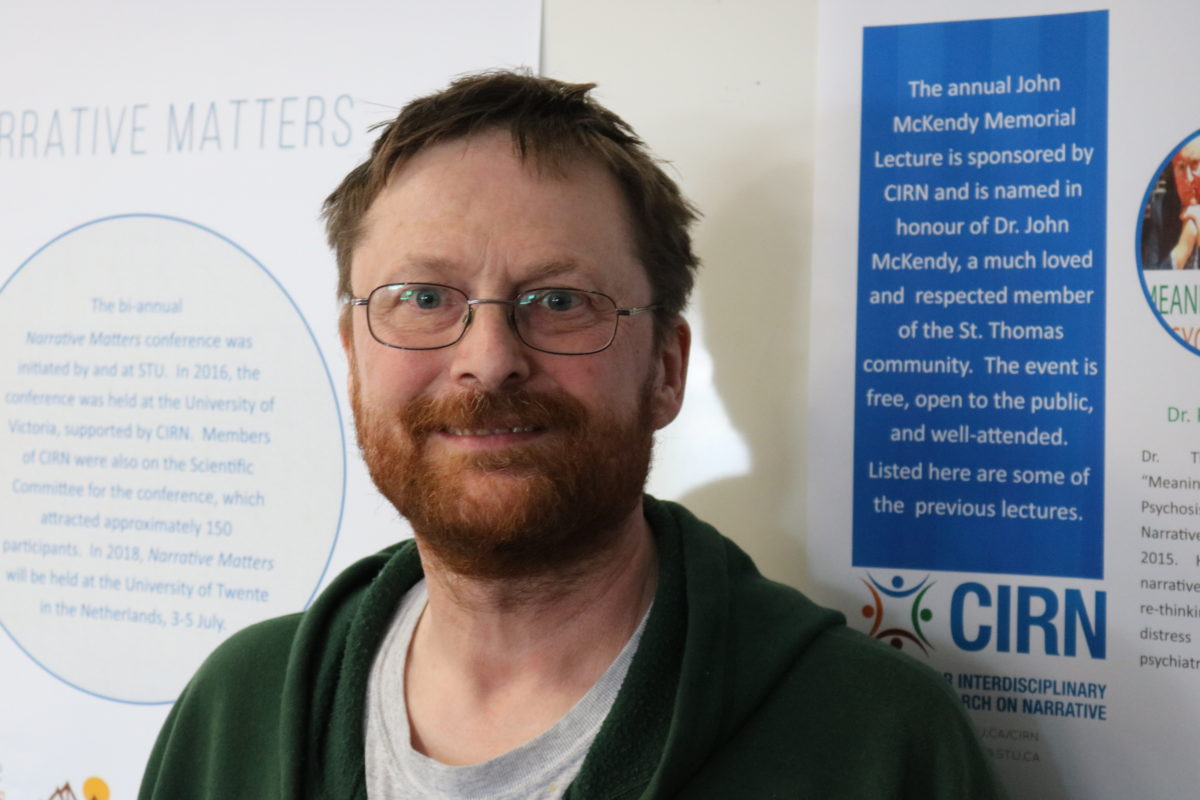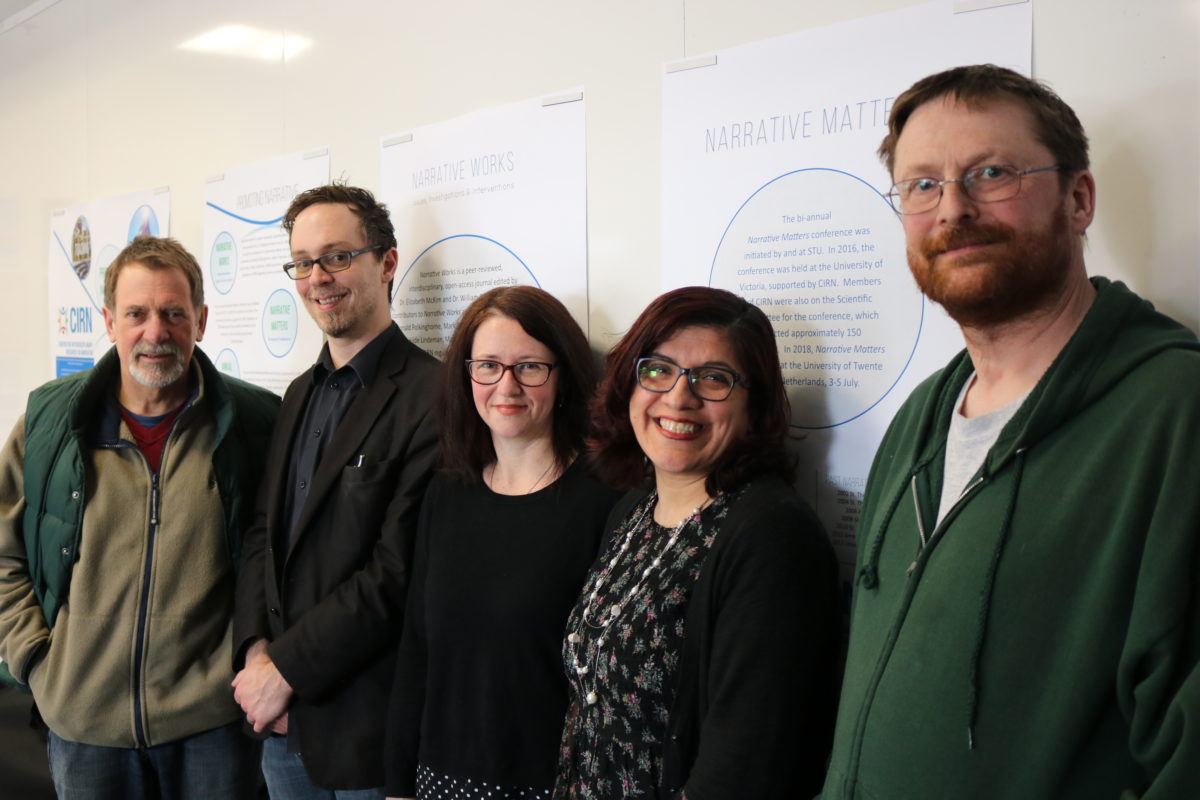Matte Robinson, an English professor at St. Thomas University, had no idea he was practicing a form of narrative care with his ailing grandmother.
“She was the greatest storyteller in the family, but she was kind of a luddite. She didn’t even like to have a VCR in the house,” Robinson said.

A luddite is someone opposed to increased industrialization or technology. So, when Robinson asked his grandmother if he could record her stories on camera, he expected her to say no, but to his surprise, she said yes.
They would meet once a week and his grandmother would get all dressed up, prepare a traditional English breakfast and a story about her life she wanted share.
“She’d tell these marvelous stories and she knew these were for great-grandchildren that she hadn’t met yet and none of use could believe how wonderful it was,” Robinson said.
“It seemed to reinvigorate her. It really cemented our bond. We became friends again as adults in a way that we hadn’t managed to before.”
Years later, Robinson landed on a committee with Bill Randall, a gerontology professor at STU, whose main discipline is narrative gerontology.
Narrative gerontology uses storytelling and listening as a form of care for those who may no longer get the chance to tell their story, which Robinson realized he was doing for his grandmother.
“Narrative gerontology is all about seeing aging as a biographical process and not just a biological process,” Randall said.
“If you can help people explore and tell their stories, it increases their sense of personal meaning. It increases their sense of personal mastery, it decreases symptoms of depression and overall helps them connect better to themselves and other people.”
Enhancing well-being
To increase the use of narrative care, Randall and Robinson have been working on the concept at the Centre for Interdisciplinary Research on Narrative alongside four other STU and University of New Brunswick professors: Clive Baldwin, Gül Çalışkan, Marcea Ingersoll and Dolores Furlong. The group combines each of their different disciplines, including social work, sociology, education and nursing, to research the power of narrative.
Each member brings a unique perspective to the project, which Baldwin, the Canada Research Chair on Narrative Studies, refers to as Enhancing Well-Being in Later Life through Innovations in Narrative Care.
“Everyone has a story to tell. [Russian philosopher Mikhail Bakhtin said], ‘To not be heard, to be ignored, to not have your story listened to is equivalent to death.’ As people grow older, opportunities often become fewer to tell that story, audiences become fewer, participants in your story becomes fewer,” Baldwin said.


“Olden age brings with it new opportunities to re-story your life, but they’re not always validating [and] not always appreciated the way they should be so this project is about capturing that in order to generate that well-being.”
To spread awareness and teach the general public about narrative care, Baldwin and the rest of the group submitted their project to the New Brunswick Innovation Foundation in December as a part of R3 Innovations in Aging, a competition with a grand prize of $50,000.
The foundation will be announcing three winners of $50,000 each at the conference on April 12, but there is also a CBC Viewers’ Choice Award up for grabs worth $15,000 in research funding.
In February, it was announced the STU narrative care project was one of five finalists.
Çalışkan, a sociology professor at STU, is grateful the importance of narrative is being recognized.
“Narrative is very grounded to [the lives of people] so it was refreshing to see that that’s acknowledged and given credit to. And it also showed maybe there is need for listening to stories, a need for further connection, transmission of wisdom and all that, so it was really refreshing to see that that’s acknowledged,” she said.


If the group were to receive the funding, the money would go toward what they call the Train the Trainer program, which would teach people the benefits of engaging in storytelling and how to properly record stories, especially in older age.
“As we age, we really need to have rich stories to draw from, to give ourselves a sense of meaning and purpose and value but … if you have to be institutionalized, your narrative environment shrinks and also you may [have] some health issues like hearing loss [or] vision loss,” Randall said.
“As you may lose your wife or your husband and family members move away, that isolation component … really is a challenge to your story. All the more reason why it’s necessary to have good listeners.”
Sharing wisdom
Randall said the goal of the program is to provide a dose of narrative care, instead of relying on typical methods when treating elderly depression, loneliness or loss of self-esteem.
“The value of this [project] has a very positive dimension to it. We’re not seeing aging as a problem that we’ve got to rally around and fix but rather as an opportunity for the sharing of wisdom,” Randall said.
Randall said the goal of the program is to prove narrative care can make a difference in the elderly community by celebrating stories some may have forgotten about.
“My motto is in our stories lies our strengths.”

